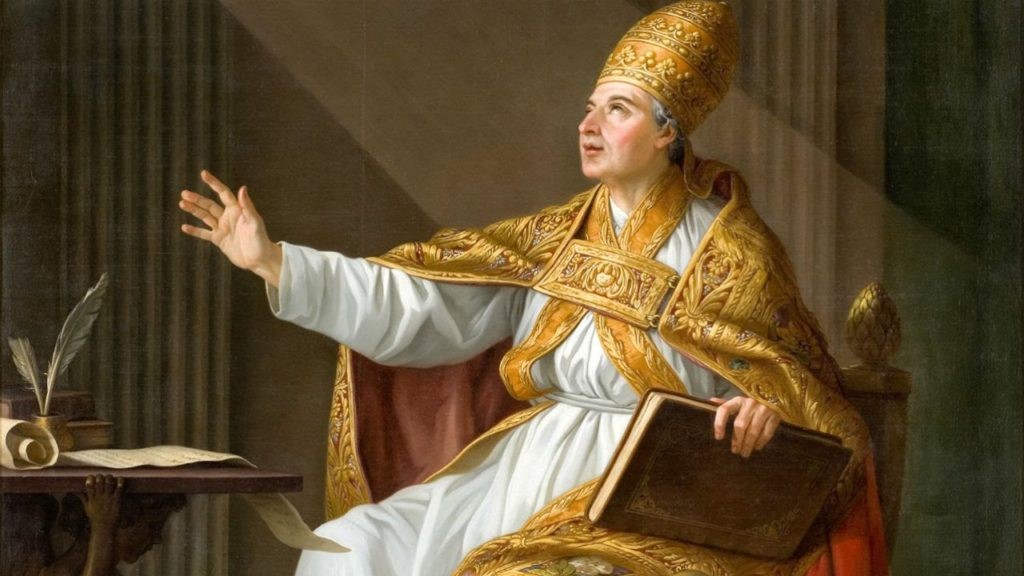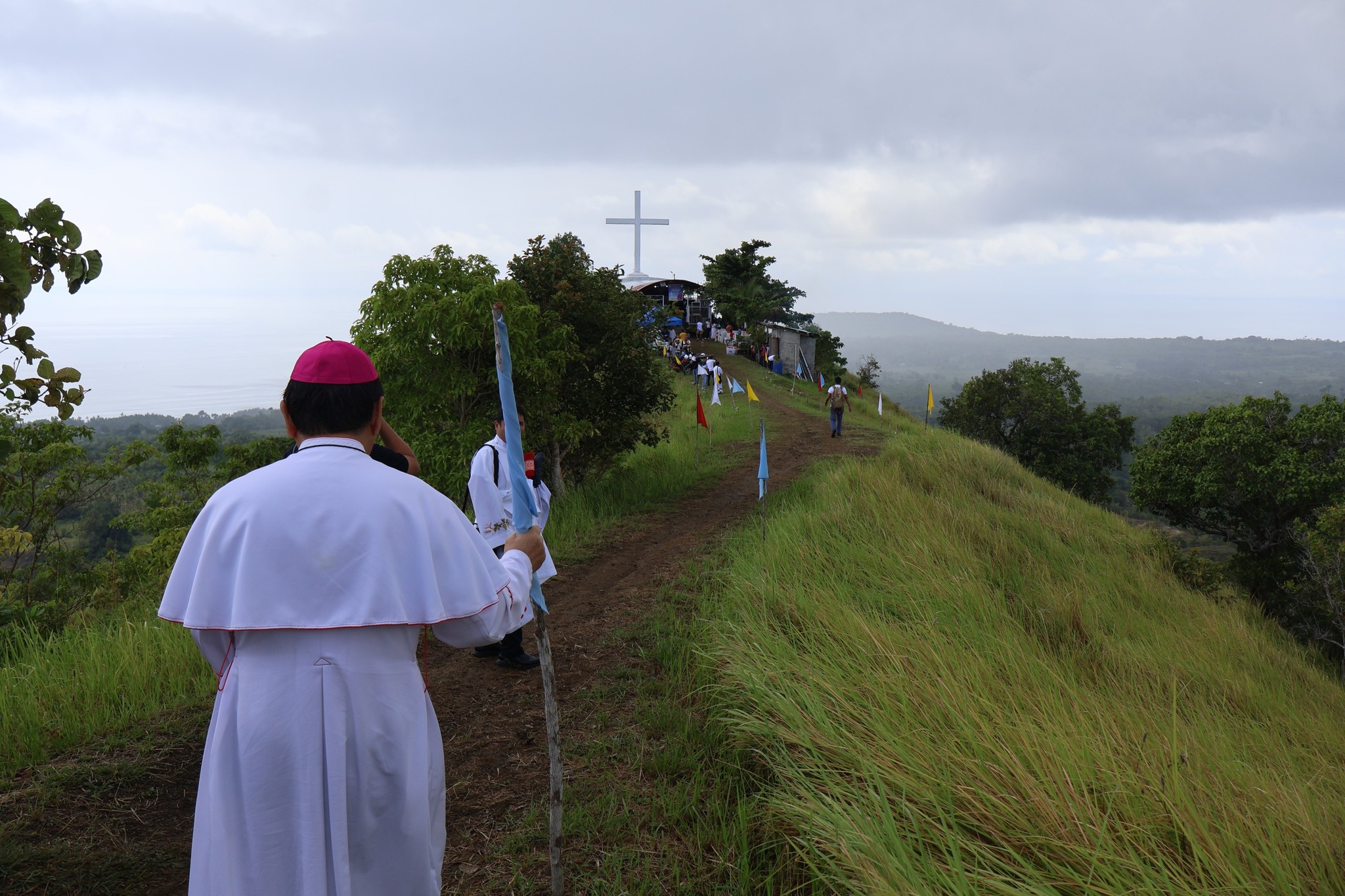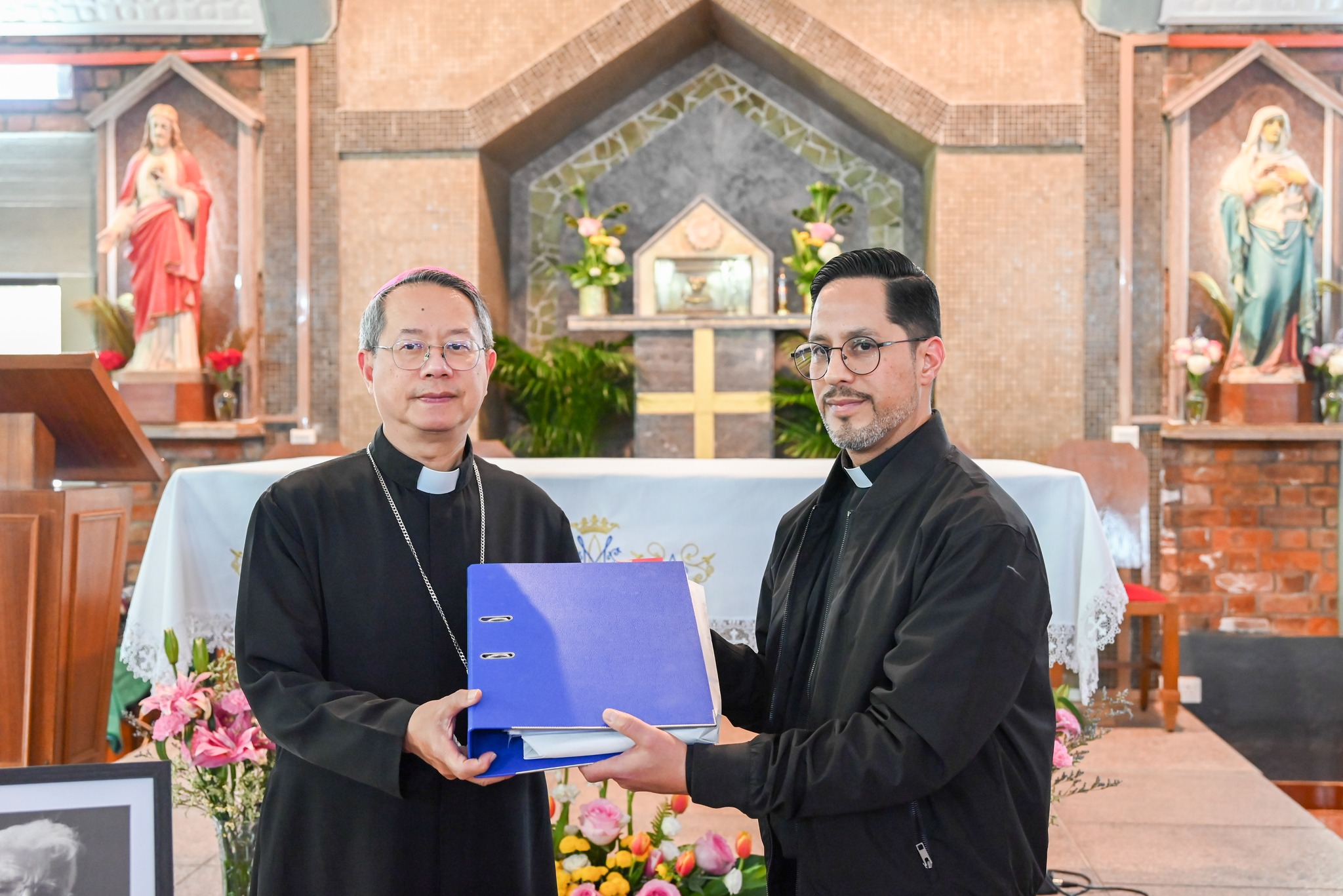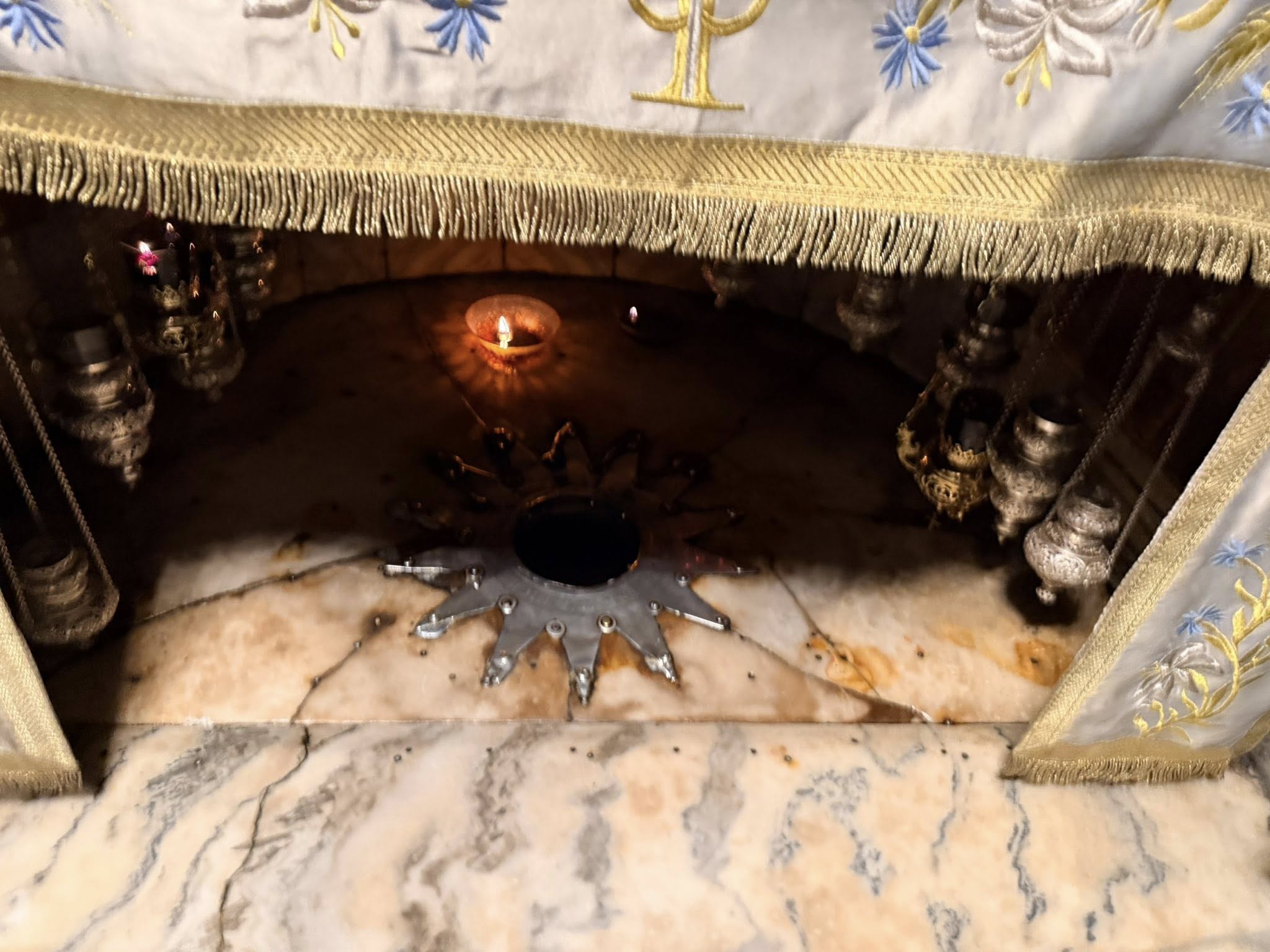– Anastasios
There are not many popes that are called “the Great.” Probably the most famous of them is Saint Gregory (540-604). He came from a very important family, the gens anicia, a family that gave the Church great names as Saint Benedict of Norcia, Boethius, Saint Scholastica and several Popes. Gregory indeed wanted to be a monk and for this he built a monastery in the Caelian Hill in Rome, where his family owned lands. But because of his great intelligence and piety, he was called by the popes to several duties and diplomatic tasks. Gregory did not really want to be distracted from his life of prayer, but could not certainly refuse to obey the Pope.
He was elected pope, despite his ill health. He was pope in a very difficult time, when Rome was plagued by diseases and suffering and the city was on the decline. He was in charge of rebuilding his city, not only in the social aspect, but also in liturgy. He was of great importance for the many reforms he did in the field of liturgy, even if some of them may be a bit legendary, as for example the one concerning liturgical songs. You may know that the Gregory in Gregorian chant is indeed named after him, but this does not mean that he really has something to do with the repertoire which was composed a few centuries later. The legend was born in Carolingian environment, also thanks to one of his biographers.
It was not a legend that he contributed a great deal for the evangelization of England. We have some beautiful letters between him and Saint Augustine of Canterbury, the first evangelizer of the Angli, where Augustine asked Gregory about directions for his mission.
But Gregory was not only a reformer in different fields, but also a man of deep prayer. In his works in his letters, we can really grasp the many facets of this spiritual master. In a letter to Severius, Bishop of Aquileia, Gregory exercises his pontifical authority firmly but with great respect for opponents.
To a Deacon of Salona, Honoratus, he addressed a letter that deals with division in local Church: “Having read the contradictory letters which thou and thy bishop have addressed to us against each other, we grieve that there is so little charity between you. Nevertheless we enjoin thee to continue in the administration of thy office, and, if the cause of offence between you can, under the power of grace, be settled on the spot, we believe it will be greatly to the advantage of your souls. But in case the discord between you has so set you in arms against each other that you have no will to allay the swelling of your offence, do thou without delay come to be heard before us, and let thy bishop send to us on his own behalf such person as he may choose, furnished with instructions; that, after minutely considering the whole case, we may settle what may appear fit between the parties. But we would have thee know that we shall make strict enquiry of thee on all points, as to whether the ornaments, either those of thine own church, or such as have been collected from various churches, are being now kept with all care and fidelity. For, if any of them shall be found to have been lost through negligence or through any person’s dishonesty, thou wilt be involved in the guilt of this, being, in virtue of thy office of Archdeacon, peculiarly responsible for the custody of the said church.”
Certainly Gregory is a model for all Popes to come. He knew that terrestrial battles can only be won with spiritual weapons. A lesson that should never be forgotten.


 Follow
Follow


